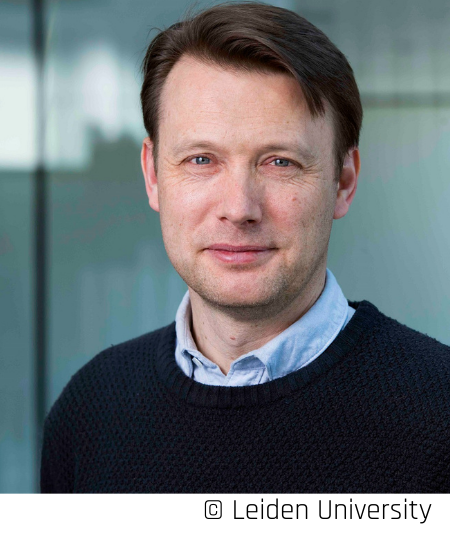Interview with Meindert Lamers, Project Coordinator, RespiriTB & RespiriNTM, Leiden University Medical Centre
November 2023
What makes the RespiriTB and RespiriNTM projects unique?
Within the AMR accelerator projects we are unique for two reasons:
1) We started out with several research lines, each of them with the aim of bringing a compound towards Phase 1 clinical studies. These multiple research lines gave us a wide scope of possibilities and enlarged our chances of success. One of these is now at the preparative stage for our first Phase 1 clinical trial.
2) Our consortium is a combined academic/industry drug development pipeline in which all partners, both academic and industry play different roles in the drug development process.
From your perspective, what is the value of working through public-private partnerships in the AMR Accelerator programme?
The AMR Accelerator gave us the opportunity to bring together scientists from different backgrounds, academia and industry, and different expertise such as chemistry, animal studies, toxicology, and structural biology. Working together brought many new opportunities to access knowledge and technologies to each of the partners that would not have been possible without the AMR Accelerator.
What are the main challenges and learnings in your project, and for this kind of research in general?
The cultural difference between academia and industry was one of the more challenging aspects of our collaboration. While academic researcher like to dive deep into their field of research, often following leads of which the outcome is not clear, industry researchers are driven by clear goals with well-defined outcomes. When these goals cannot be met, a project may be discontinued, something that an academic researcher is not familiar with. In addition, within an academic research team there are PhD students and postdocs that rely on scientific publication, and therefore results. This makes abandoning a running project difficult, as even though a research line may be discontinued for lack of drug-development potential, there may still be scientific merit in continuing the research line for gain of further knowledge.
About RespiriTB and RespiriNTM
The RespiriTB and RespiriNTM project has received funding from the Innovative Health Initiative 2 Joint Undertaking (JU) under grant agreement No 853903 and No 853932. This Joined Undertaking receives support from the European Union’s Horizon 2020 research and innovation programme and EFPIA.
About the AMR Accelerator
The aim of the Antimicrobial Resistance (AMR) Accelerator Programme is to progress the development of new medicines to treat or even prevent resistant bacterial infections in Europe and worldwide. The programme comprises the following three pillars: a Capability Building Network, a Tuberculosis Drug Development Network, and the Portfolio Building Networks.
The scope of the AMR Accelerator is broad; under one structure, it addresses many of the scientific challenges of AMR, and it supports the development of new ways to prevent and treat AMR. More broadly, the AMR Accelerator contributes to the European action plan on AMR.
For more information on the AMR Accelerator, please visit https://www.amr-accelerator.eu/
About the Innovative Health Initiative
The Innovative Health Initiative (IHI) is Europe’s largest public-private initiative aiming to speed up the development of better and safer medicines for patients. IHI supports collaborative research projects and builds networks of industrial and academic experts in order to boost pharmaceutical innovation in Europe. IHI is a joint undertaking between the European Union and the European Federation of Pharmaceutical Industries and Associations, EFPIA.
For more information, please visit www.ihi.europa.eu
Disclaimer
This communication reflects the views of the authors and neither IMI nor the European Union and EFPIA are liable for any use that may be made of the information contained herein.


